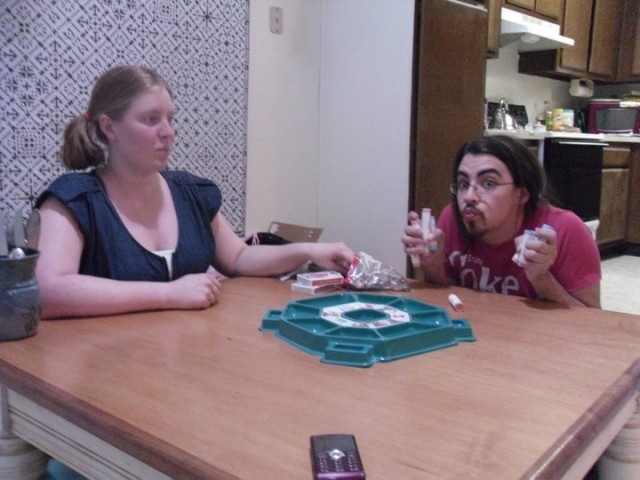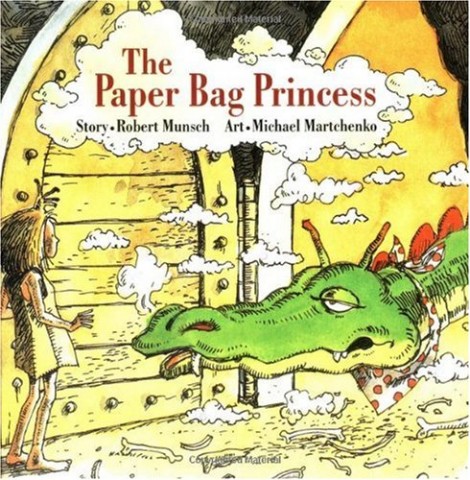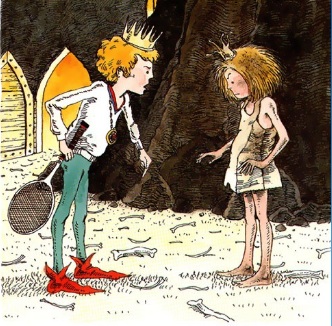To continue my current project of praising some kick ass women that helped influence Middle School Patricia for the better, here is a list of kick ass women characters from books I remember reading and enjoying! Middle School Patricia read a lot–probably way too much, looking back–so literary characters definitely had way more influence on her than they probably should have.
Elizabeth, the Paper Bag Princess
Peggy Orenstein of Cinderella Ate My Daughter fame actually mentions this picture book when she’s trying to find more female-empowering fairy tales to read to her daughter. Unfortunately, she doesn’t like this story very much either, because she says the message seems to be that princesses can’t be strong women AND find love. They have to choose one or the other. Personally, I don’t think that is really the point of the book at all. Here is a plot rundown in case your childhood was deprived:
A dragon wrecks Princess Elizabeth’s castle and carries off the prince she was going to marry! Rather than sit around feeling sorry for herself or waiting for someone to rescue her, she puts on the only thing she can find–a paper bag–and sets off after the dragon to rescue her prince herself. She tricks the dragon into wearing himself out and falling fast asleep, and then heads on into his lair to find worthless Prince Ronald. Prince Ronald is appalled by her gross singed hair and terrible choice of clothing and tells her to come back when she looks like a “real” princess. Elizabeth tells Ronald that even though he may look like a prince, he is really just “a bum” and runs off into the sunset.
So, Peggy is right: Princess Elizabeth doesn’t get married at the end. Which I think is awesome! I hate how stories always end with the female protagonist getting married, as if that is the pinnacle of a woman’s existence and nothing of note will ever happen to her again. I also don’t see this ending as saying “all men suck and Elizabeth can never get married because she is too strong a lady”. Elizabeth won’t marry Ronald, which is totally the right choice and I don’t think anyone would argue otherwise. For all we know, she is running off into the sunset to find an awesome guy who doesn’t care about her appearance and would not act like such a prat when she just went to the trouble of rescuing him! The moral is not that strong women can’t find husbands; it’s that appearances don’t matter, and you shouldn’t waste your time with people who think they do! Elizabeth is amazing no matter what she is wearing, even if it is just a paper bag, and Ronald is a total jerk even though he is always dressed in the medieval fantasy version of Aeropastale. Secondarily, Elizabeth doesn’t “have” to get married at the end of her story just because she’s a princess or a woman. I wish more stories for girls ended without them finding love, because having it happen in pretty much every book creates too much pressure and unrealistic expectations.
Some people have thought it seemed like a weird choice for me to dress as for my wedding, what with it being kind of the opposite of a love story. And, yeah, it’s not going to work out for Elizabeth and Ronald, but I think this story can still teach us a lot about love: how important it is to love yourself, to find someone who can love you no matter the clothes or hair or other superficial things, and not to ever settle with someone who is less than perfect just because it’s the end of the story and you feel like that means you have to get married. Luckily, I have taken all those lessons to heart, which is why I’m marrying Steven Wiggins, not Prince Ronald.

I mean, is this the face of a man that cares about appearances? Not enough to untag himself on facebook, apparently
Read the rest of this entry »

